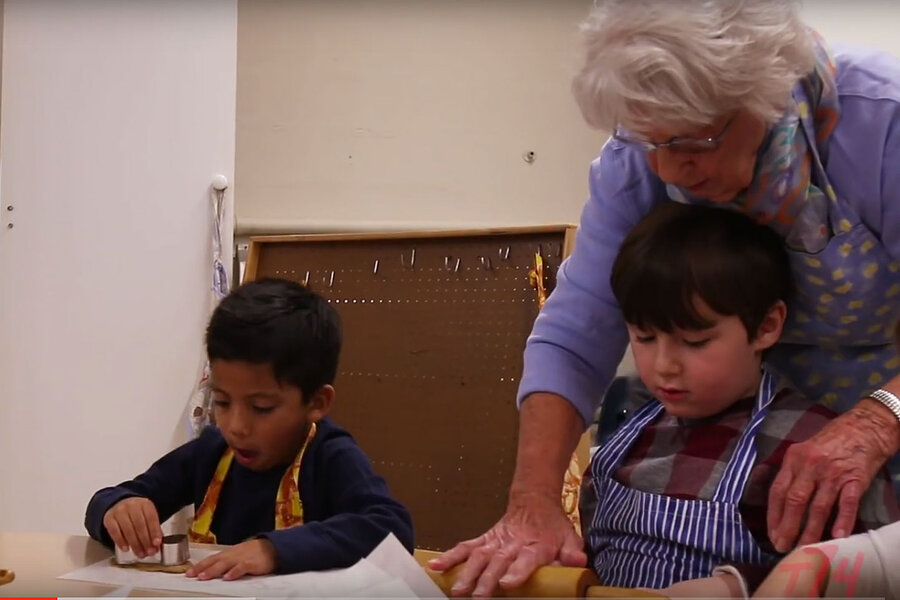'Granny' teaches at 102: How has her subject changed?
Loading...
She turned 102 on Tuesday, she works 35 hours a week as a teacher, and her students at Sundance School call her "Granny."
Agnes Zhelesnik traded her career as a homemaker for a teaching position at age 81, and now teaches baking and sewing at an arts-based private school for students aged pre-Kindergarten through 5th grade in New Jersey, USA Today reported.
Home economics has evolved drastically throughout her lifetime in American schools, but Ms. Zhelesnik has no plans to stop and maintains that the homemaking skills she teaches are worth continuing.
"This is something that they’re going to use for the rest of their lives; they're not going to have it just for today,” she told The74Million.org, a non-profit news site for education. “You'll be surprised how they are going to remember it when they get older, or even as a mother.”
Many schools have dropped home economics classes, which have been rebranded Family and Consumer Sciences (FACS). Where they continue, they often reflect a changing society that views food, finance, and family as specialized areas or even hobbies.
Poorer schools can struggle to find the time and money to spare for a FACS course, and when they do they want maximum output and often keep it career-focused. Food education, for example, is less about preparation or even menu planning than "skills to be a chef or to be employed with the food industry," says Linda Kirk Fox, dean of the College of Family and Consumer Sciences at the University of Georgia.
It's a challenge for college programs trying to educate teachers for a field that once taught a core of homemaking skills and personal development and has now become a highly specialized, career-focused class, even at the middle school level.
"I wonder, 'What is the level of readiness and career focus of middle school students?" Ms. Fox asks in a phone interview with The Christian Science Monitor.
FACS teachers must "become the guides of learning and help students learn to learn," says Dr. Peggy Wild, a former president of the American Association of Family & Consumer Sciences and technical education director for Indiana.
She says FACS classes have moved away from a desk or even laboratory experience with cooking, clothing construction, and childcare to a continuum between basic interpersonal skills and career readiness. The shift shows an effort to meet the needs of families in a technical, rather than industrial, age.
"Health and wellness have become something you have to deliberately plan for rather than just the way you live your life," Ms. Wild says in a phone interview with The Christian Science Monitor.
Wellness is something that despite her age, and despite the dramatic changes to her subject in the last century, Zhelesnik – the "Granny" of New Jersey – teaches her students.
"You have to like what you're doing. My favorite part of teaching here is taking care of the children," she said in a video profile with The74Million.org. "This is happiness for me."






